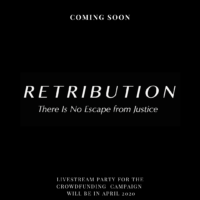
Recently I came across Kurt Vonnegut’s 8 rules for writing fiction. Every awful novel I have ever read has broken one or more of these rules. This is why I had to expand upon it and explain why each rule is so important. I’m doing my part to help readers everywhere. You can thank me with monetary gifts.
Kurt Vonnegut’s Eight rules for writing fiction:
1. Use the time of a total stranger in such a way that he or she will not feel the time was wasted.
I have been reading a lot of free novels from Amazon lately. There have been a few hits but way more misses. And the misses have been so bad that I have started reading the critical reviews before I download free novels. They may be free, but those are hours I will never get back if wasted on a bad novel. I have learned that there are different types of bad. There is the ‘this plot is stupid and could have been squashed with one line’ bad. And the ‘characters are allergic to common sense’ bad. The ‘I am too distracted by all of the typos and grammar errors to enjoy the story’ bad. But the most disappointing bad of all is ‘this story has potential, but was horribly executed’ bad. It’s the bad you feel could have been fixed with a couple more drafts and a really good editor. But if you start respecting the time of strangers you can avoid all these dreaded bads.
2. Give the reader at least one character he or she can root for.
This is something that even really well written novels can fall short of. I am a huge fan of the HBO series Game of Thrones. Because of this I started reading the series A Song of Ice and Fire that the television show is based on. That made me a fan of George R.R. Martin’s writing. So I decided to start reading some of his other books. I started with his debut novel The Dying of the Light. It was beautifully written, but I could not connect with the characters. I enjoyed reading his prose, but as the plot developed, I realized that the story was going to revolve around saving a character I couldn’t stand. I had to stop reading. Martin is famous for killing off characters and I couldn’t stomach seeing anyone die for this character. So as much as I loved the writing, it wasn’t enough to draw me in. I needed to root for the characters to survive and I just didn’t care.
3. Every character should want something, even if it is only a glass of water.
Characters without desires are boring. If they don’t want anything, then they have no motivation to do anything. They become passive and in order for the plot to move along things must keep happening to them instead of them actively taking part in the plot. These characters have no backbone and they generally end up becoming like characters in rule number 2. Characters no one roots for. Their desires doesn’t have to be grand, just big enough to motivate action. In another book written by George R.R. Martin, Windhaven, the main character lives on a planet covered in islands. The seas and oceans are way too dangerous to sail on, so the inhabitants are mostly stranded on the islands that they live. Except for the flyers who own a set of wings that have been passed down to them through their family. The main character was adopted into a family of flyers. But soon after, a child was born that the wings had to pass down to. The main character’s want is of course to be a flyer. And the sibling who actually gets to be a flyer really just wants to be a singer. Problem solved, you think. But everyone else on the island is determined to follow ancient traditions and laws. Their wants cause them to take action and this starts the plot of the novel.
4. Every sentence must do one of two things — reveal character or advance the action.
This is a sin of many of the free novels from Amazon. Sentences that went on and on and had nothing to do with the plot or character development. Because of the volume of books I’ve been reading lately, I find myself skipping these unnecessary sentences. I sometimes can skip whole passages without missing a single plot point. That is not a good thing. If you are writing entire paragraphs that can be thrown away without affecting plot or character development, guess what you’re doing? You are wasting the time of a stranger. You may be attached to the passage, thinking that it’s put together well. You may think it’s some of the best writing you’ve ever done. But guess who’s the only person attached to it? You. The many strangers reading your work only care about getting engrossed in an interesting plot filled with complex characters. They appreciate well written sentences, but only if they are relevant to story. Anything else is extraneous and the novel will be better served if it is cut out.
5. Start as close to the end as possible.
Many of the free books I’ve read has made the mistake of including backstory into the plot. Backstory is great for the writer to understand why the characters feel the way they feel or do the things they do. It just shouldn’t be a huge part of your story. That’s why it’s called backstory. I recently read a book that was committing another major sin, splitting up one story into multiple parts and calling it a series. This wasn’t one story told in multiple books, this was one book split into three or four parts. Each part being a hundred pages or so. It’s a cheap way to get people to pay for one book three or four times. They generally offer the first part free then charge $2.99 or more for each subsequent section of the book. I hate this with a passion. I like book series. I like series of stand alone stories with one main connection. I like series that tell one story over multiple books. I do NOT like one book broken up into parts and sold as a series. That is not a series, it’s just a book. This book not only committed that sin, it also had the nerve to have the first “book” be almost entirely backstory. By the time the book finally got to the part of the story described in the blurb, it ends on a cliffhanger. I wanted to throw the book against the wall. But I was reading it on my phone. You should not have to tell the backstory in order to reveal the character. That should be done with their actions and the things that they say. I’m not saying avoid backstory altogether, a rule of thumb is to not have it longer than a couple of sentences. Certainly not one hundred pages of it.
6. Be a sadist. Now matter how sweet and innocent your leading characters, make awful things happen to them — in order that the reader may see what they are made of.
This is something that George R.R. Martin is a master at. He writes characters that you love and root for, then has horrible things happen to them and everyone they love. They constantly have to make life or death decisions that can have a ripple affect that goes on for years. In Game of Thrones, Eddard Stark is a man of honor. It colors everything that he does, every decision he makes. In the books that follow you see his influence in his children. The decisions they make, the people they trust, their priorities in life. In some ways this makes Eddard both a good and bad example for his children. He raised an honorable brood, but in Westeros, where the story takes place, honor is rarely rewarded. As a matter of fact, the more innocent the character, the more horrible the actions against them. It’s both frustrating and fascinating.
7. Write to please just one person. If you open a window and make love to the world, so to speak, your story will get pneumonia.
This is something I encounter when getting feedback about my writing. If you get feedback from eight different people, you’re liable to get eight completely different takes on one thing. What I tend to look at is if a number of people are having problems with the same things. These are the things that need to be fixed. But I can’t possibly take everyone’s suggestion on how to fix it because they all would be different. Even if I get feedback from one person and I’m told to fix something, I still may not except the suggested fix if it goes against my character’s personality or contradicts the theme I was going for. You have to know what your novel is about and who your characters are. If you try to please everyone your story will suffer for it.
8. Give your readers as much information as possible as soon as possible. To heck with suspense. Readers should have such complete understanding of what is going on, where and why, that they could finish the story themselves, should cockroaches eat the last few pages.
I really hate when a character has an issue that is providing some sort of obstacle in their everyday lives and they and everyone around them knows what it is except me. It’s unneeded suspense. It doesn’t help the plot to hold this information back and telling it would help to reveal not only that character but any other character involved. I especially hate it because when the issue is finally revealed, it never lives up to the hype. It’s never as serious as you imagined it in your head. It’s the build up of the unknown. It’s why psychological thrillers can be scarier than slasher flicks. The monster you imagine is always scarier than the reality. Same thing with the build up in novels. It’s never a part of the plot, just an element of the backstory. And you know how I feel when people try to do too much with backstory. When it’s finally revealed what the big mystery is, it’s always a let down. Don’t bog the reader down with exposition, but don’t structure conversations in such a way that you purposefully hold back information. There is always a natural moment where you can pull the trigger and give up the information. Don’t go out of your way to keep it to yourself. Nobody likes a tease.
If you follow all of these rules you may not have the perfect novel, but at least you won’t have one that is constantly being thrown against the wall in frustration.





